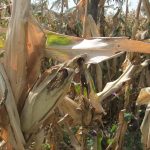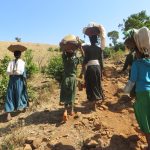Multifaceted graduation models are a promising strategy to sustainably reduce poverty, yet evidence on their effects on child undernutrition remains limited. This randomized controlled trial evaluated a nutrition-sensitive graduation model combining village economic and savings associations, peer-led behavior change communication, and maternal cash transfers (and for a subset, lump-sum livelihoods transfers) implemented among ultra-poor households […]
Lessons from the Digital Agricultural Advisory Services (DAAS) project in Ethiopia: Dairy use case
Agricultural extension services are a cornerstone of rural development and a vital instrument for policymakers to directly shape economic, social, and environmental outcomes in rural areas. These services aim to enhance farm productivity by promoting the adoption of agricultural technologies, inputs, and management practices. Through outreach, training, knowledge sharing, and learning, extension activities help bridge […]
Lessons from the Digital Agricultural Advisory Services (DAAS) project in Ethiopia: Wheat use case
Agricultural extension services are a cornerstone of rural development and a vital instrument for policymakers to directly shape economic, social, and environmental outcomes in rural areas. These services aim to enhance farm productivity by promoting the adoption of agricultural technologies, inputs, and management practices. Through outreach, training, knowledge sharing, and learning, extension activities help bridge […]
Micro-, small- and medium-sized enterprises and their role in sustainable healthy diets in Ethiopia
Ethiopia is working to transform its food system through a set of game changers that strive to change Ethiopia’s agricultural production patterns and to help improve consumption of under-consumed foods. The goal is to improve diet quality for Ethiopian consumers and households, which can only take place if consumers are more aware of what types […]
Armed conflict, community-based cash transfers, and social cohesion: Evidence from a randomized intervention in Ethiopia
Amid a surge in armed conflicts in Africa, the impact of armed conflicts on social cohesion and potential avenues to rebuild social cohesion in conflict-affected settings remain active areas of inquiry. Most importantly, identifying instruments and interventions that can effectively strengthen social cohesion in conflict-affected settings can inform and facilitate peace-building efforts. We examine whether […]
- « Previous Page
- 1
- 2
- 3
- 4
- 5
- …
- 123
- Next Page »




